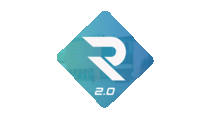Decentralized Academic Platforms: The Future of Education in the Age of Blockchain
DOI:
https://doi.org/10.34306/bfront.v3i2.467Keywords:
Blockchain Technology, Application, Verifying Educational Attainment, Compatibility, Implementation ApproachAbstract
Despite referring to two different phenomena, the phrases "decentralized organization" and "distributed organization" are sometimes used synonymously. I suggest separating distribution the dispersion of organizational decision-making from decentralization, which I define as the dispersion of organizational communications. The distribution of an organization does not necessarily imply its decentralization (and vice versa), because the presence of many management tiers impacts only distribution, not decentralization. Understanding the rise of digital platforms like Amazon.com, which control the global economy in the twenty-first century, has consequences for this proposed differentiation. Blockchain has arisen as an alternative technological framework. However, well-known platforms often use machine learning as their primary technology to translate inputs (such as data) into outputs (such as matchmaking services). I contend that machine learning encourages centralized communications and the concentration of decision-making, whereas blockchain provides platforms that are simultaneously decentralized and distributed (such as Bitcoin). This distinction has significant implications for antitrust policy, which, in my opinion, should instead concentrate on the data level for both its analysis and its target of action. My predictions for the future of competition between centralized and decentralized platforms, the development of governmental regulation, and broader ramifications for managers in the digital economy and the business schools responsible for their education are all based on the framework of this essay. I end by reflecting on the chance to renew cybernetic theory to stop a future where a small number of platform behemoths rule supreme.
Downloads
Published
How to Cite
Issue
Section
License
Copyright (c) 2023 Berlin Any, Tarisya Ramadhan, Alwiyah, Efa Ayu Nabila

This work is licensed under a Creative Commons Attribution-ShareAlike 4.0 International License.














 This work is licensed under a
This work is licensed under a 